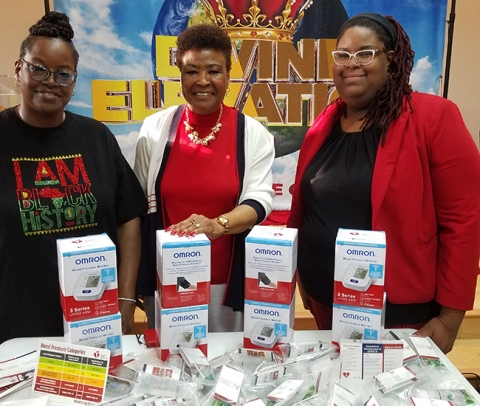Thanks to a partnership between the American Heart Association and the University of Arizona Sarver Heart Center Community Coalition for Heart Health Education (CCHHE), trained volunteers are working with African American community partners to distribute education materials and blood pressure cuffs. The goal is to reduce the impact of hypertension, or high blood pressure, a condition that disproportionately affects African American adults.

The CCHHE volunteers will train people to correctly and consistently monitor their blood pressure according to AHA guidelines at home and to know their numbers, particularly when it comes to their blood pressure risk and status.
“This is a huge concern among African Americans, and we are working to change the impact of high blood pressure in this community,” said Wanda F Moore, co-chair of the Sarver Heart Center’s Women’s Heart Health Education Committee, and chair of the Community Coalition for Heart Health Education (CCHHE).
Collaborating with the Interfaith Ministerial Alliance Health & Wellness Committee and Bright Star Program at Rising Star Baptist Church, each member of the Sarver Heart Center CCHHE was trained in February 2021. CCHHE members applied for the grant from the AHA’s Self-Monitoring Blood Pressure Program in the African American Community.
“We received 90 blood pressure cuffs and monitoring cards for participants. We selected and trained 12 community trainers to work with participants. The BP cuffs were distributed to participants known to have hypertension. Our Tucson program kicked off the first week of May,” said Mrs Moore.
The lead trainers will provide AHA monthly updates on the participants for six months and CCHHE will follow up on the data submitted to AHA after the program ends. “It is CCHHE’s goal that each participant will continue to monitor their blood pressure correctly and consistently after the program ends,” said Mrs. Moore. “Success in this program is likely to lead to expansion to include more in our community, and have a real impact to reduce health disparities in heart disease risk in the greater Tucson area.”
For more information, please email heart@arizona.edu.

